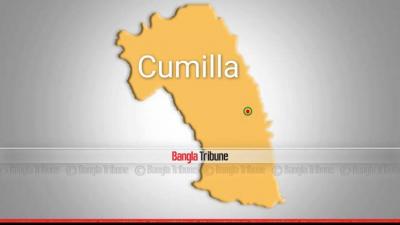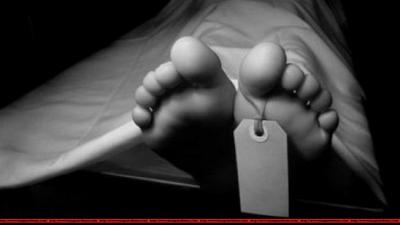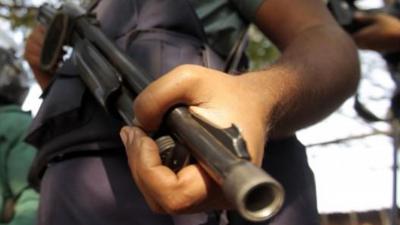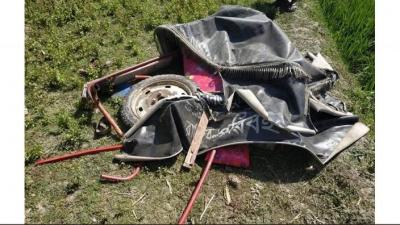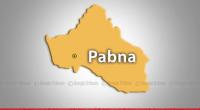 The Chittagong Hill Tracts (CHT) peace accord will turn 21 on Sunday (Dec 2). It was on this day in 1997, the Awami League government led by Prime Minister Sheikh Hasina signed a peace treaty with Parbatya Chattagram Janasanghati Samiti (PCJSS) bringing an end to two decades of insurgency between the Shanti Bahini and government forces.
The Chittagong Hill Tracts (CHT) peace accord will turn 21 on Sunday (Dec 2). It was on this day in 1997, the Awami League government led by Prime Minister Sheikh Hasina signed a peace treaty with Parbatya Chattagram Janasanghati Samiti (PCJSS) bringing an end to two decades of insurgency between the Shanti Bahini and government forces.
However, oppression and violence are still widespread in the hill tracts and according to PCJSS, the unrest will continue until the peace accord is executed completely.
The government claims that 48 out of the 72 conditions in the accord have been fulfilled. But PCJSS denied such claims, saying that a meagre 25 out of the 72 conditions have been executed. They claimed that almost two-thirds of the basic conditions in the treaty are yet to be implemented.
PCJSS leaders said that in the last ten years since AL took office in 2009, they have failed to execute even the most fundamental articles of the accord that was supposed to recognise the rights of the people and tribes of the CHT region.
“The people of the hill tracts are still being deprived of their rights. The Jumma people are being conned out of their lands, being oppressed and humiliated,” said PCJSS Vice President Uchchomong Marma.
“Since the government has not taken any initiatives to fulfil all the conditions in the peace accord, the people of CHT are still facing oppression and injustice and lament the loss of identity every day,” he added. He said that in the last ten years the government has only amended the land dispute settlement commission law but it is yet to be effective given that it has taken no measures to ensure the infrastructural facilities such as manpower and offices.
He said that in the last ten years the government has only amended the land dispute settlement commission law but it is yet to be effective given that it has taken no measures to ensure the infrastructural facilities such as manpower and offices.
On the other hand, the ruling Awami League sees the peace accord as one of the biggest achievements of the current government. According to them, eighty percent of the treaty has been executed. They see the surrender of the insurgents and end of 20 years of violence and bloodshed within months of negotiations without a third party as quite an achievement.
However, the leaders of Bengali Citizen’s Council have termed the accord as ‘draconian.’ They claim that the situation in the hill tracts is ‘quite peaceful at the moment’.
“Full implementation of the treaty will lead to a bloody conflict in the hill tracts,” said Md Atikur Rahman, President of Bengali Citizen’s Council.
“Army should be reinstated in the areas from where they have been retracted and set up army camps in areas where criminal activities are rife.”
Contrary to the PCJSS leaders, the citizen’s council leaders think that there will be no lasting peace in the hill tracts if the peace accord is fully executed.
The basic conditions PCSJJ says yet to be fulfilled |
· Recognition of the Jumma people inhabiting the Jumma areas. · Amendments of laws applicable for CHT · The District Council and Regional Council of the hill tracts were not formed democratically i.e without the votes of the permanent residents. · The general administration, laws, police, land management, forestry and environment and, tourism, education and development sectors have still not been handed over to the District Council. · The permanent residents of the hill tracts are still being ousted from their own land by settler Bengalis, temporary residents, armed forces and different government organizations. As a result land disputes are still ongoing. · The CHT Regional Council law is yet to be implemented. · Temporary army camps have not yet been ordered to retreat and as a result army rule is prevalent in the CHT. · Rehabilitation of the settlers outside the CHT not done properly · Residents of the hill tracts are still deprived of jobs · The residents still face military operations, search of homes, illegal arrests, extrajudicial killings, torture, oppression, harassment, camp expansion, terrorism on a regular basis. |

